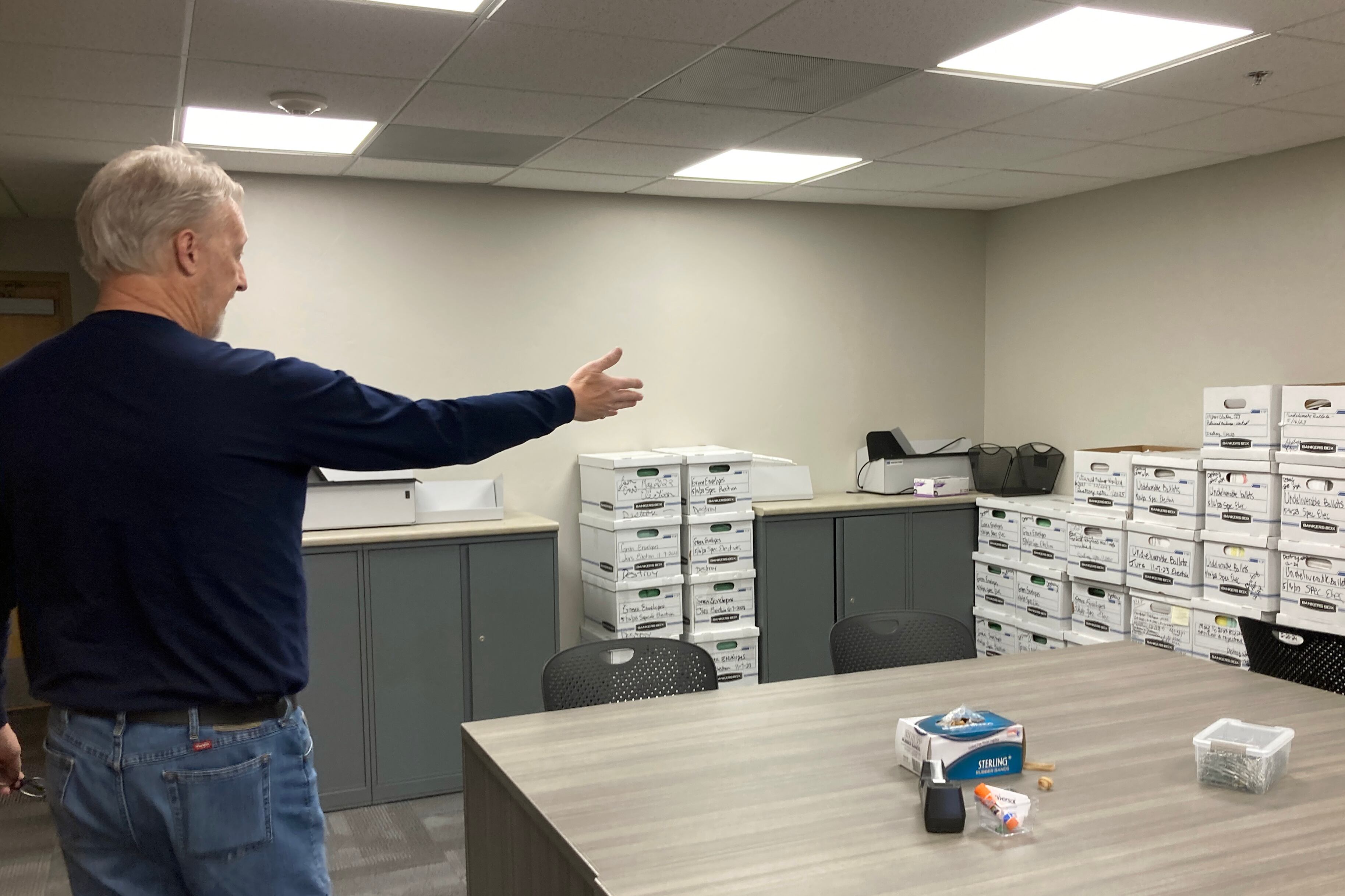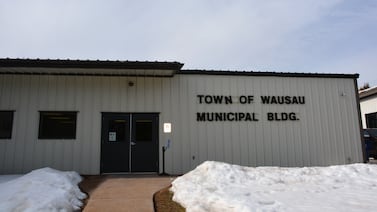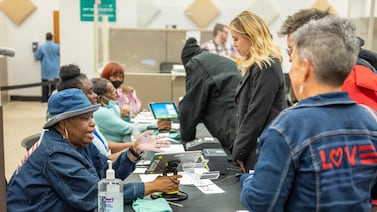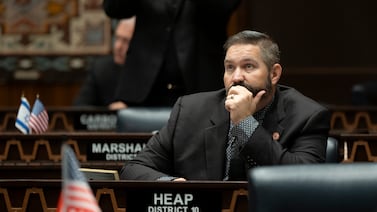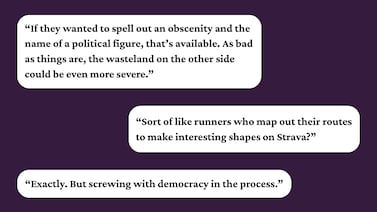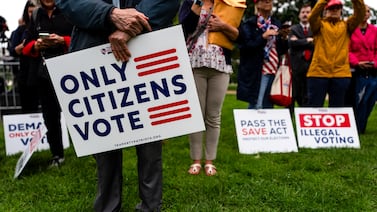Votebeat is a nonprofit news organization reporting on voting access and election administration across the U.S. Sign up for Votebeat Arizona’s free newsletter here.
The sudden resignation of the just-reelected county recorder in Cochise County leaves immense power over the county’s precarious elections in the hands of newly elected county supervisors, who will now be responsible for appointing someone to fill the spot for two years.
David Stevens announced his resignation Friday, just two months after winning the November election and 10 days after being sworn into a new four-year term.
He said in an interview with Votebeat on Wednesday that he “had every intention to do all four years,” but decided to retire from public service early as he faces health and personal issues.
“Now that I’m 63, I take more stock in the little things that happen, and it got to the point where I need to take care of myself,” Stevens said.
The supervisors of the southern Arizona county were already mulling over what changes to make after a tumultuous presidential election in the county, marred by mistakes preparing and counting ballots. After November’s election, the county now has an all-Republican board that includes returning supervisor Tom Crosby and two new members.
Now, with the appointment of the next recorder, they’ll have influence over how every part of the 2026 election is run, from voter roll maintenance, to locations of drop boxes and polling locations, to how ballots are counted and audited.
These have all been controversial issues in the county recently, and it seems like they may be again. In separate interviews with Votebeat last week just before Stevens resigned, the two new members, former state lawmaker Frank Antenori and longtime Douglas resident Kathleen Gomez, told Votebeat they believe changes to the election system are necessary.
“To improve voter confidence, to avoid voting glitches, to return integrity to the system,” Antenori said.
But Elisabeth Tyndall, former chair of the Cochise County Democrats, said she is concerned that supervisors will have such power this year, especially when it comes to appointing Stevens’ replacement.
“We have seen they don’t necessarily have the best judgement in that realm,” she said, talking about the prior board.
An election skeptic, Stevens was pivotal behind the scenes in pushing the former board of supervisors to attempt an expanded hand-count of ballots during the 2022 midterm election. He also partnered with his friend Mark Finchem, a state representative at the time and now a state senator, to try to hire a firm connected to Finchem, to put security marks on ballots. That project failed, and the county was left with 10 tons of unusable ballot paper.
The push for a full hand count made national news, and then Crosby and former Supervisor Peggy Judd refused to certify the county’s elections on time. A state grand jury charged them with two felonies, accusing them of colluding and attempting to interfere with an election. Judd didn’t run again; she accepted a plea deal, and her probation is over. But Crosby pleaded not guilty and is awaiting a trial that may occur at the end of this month. He declined to comment on Stevens’ resignation.
The midterm drama prompted the county’s longtime elections director to resign, and contributed to a lack of voter confidence. As the county prepared for the presidential election, it struggled to find and keep someone in the position. The county went through three elections directors, including a brief stint by Stevens, until ultimately an existing county employee stepped up to run the November election in an interim role.
The new officials made some mistakes while preparing and counting ballots, and then the machines broke down, forcing a long and harrowing counting process. While the results were ultimately presented as accurate, the takeaway was that changes needed to happen.
Antenori said he met with staff and he is getting quotes on getting at least one new ballot tabulator, for example, to avert a full breakdown next election.
But he and Gomez have bigger ideas about elections, too, that they feel will improve voter trust. And while Crosby and Judd found themselves in court for trying to do a full hand count of the county’s elections, both he and Gomez said they were still interested in hand-counting ballots, as a check on the electronic results.
Stevens was the elected official who knew the most about elections, and now the county is faced with replacing him. His last day is Feb. 28. Antenori said Stevens is leaving because of health and family issues. Stevens didn’t return a call seeking comment.
Tyndall said it would be helpful if supervisors took suggestions from the community while considering the replacement appointment. She thinks the county needs someone with experience in elections, to try to avoid more mistakes.
“Having no experienced people at the top is very troubling,” she said.
Antenori said the Recorder’s Office staff is experienced, so he’s not worried about that. He said it’s just as important to find someone interested in the political part of the job as in the elections and administrative part.
That’s because, Antenori said, he wants someone interested in campaigning in the 2026 election.
Update: Jan. 22, 5 p.m.: This story was updated to include comments from David Stevens.
Jen Fifield is a reporter for Votebeat based in Arizona. Contact Jen at jfifield@votebeat.org.

